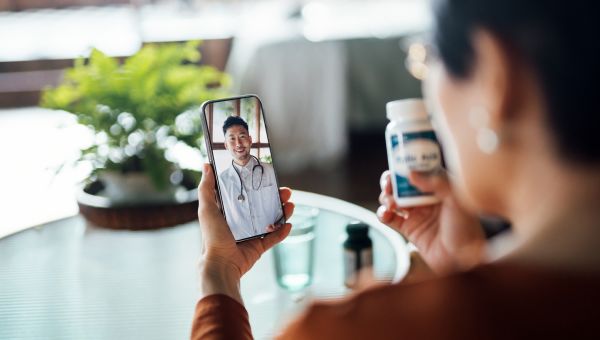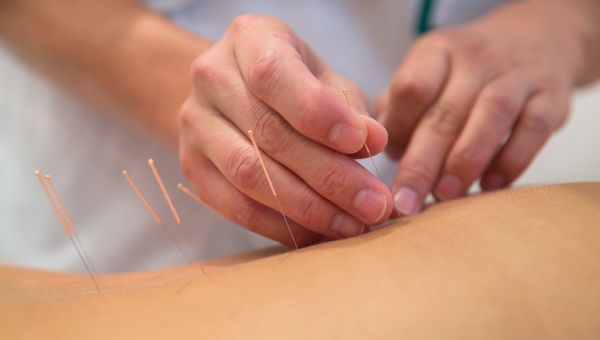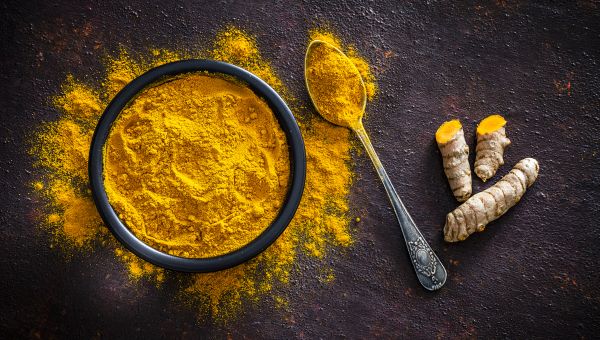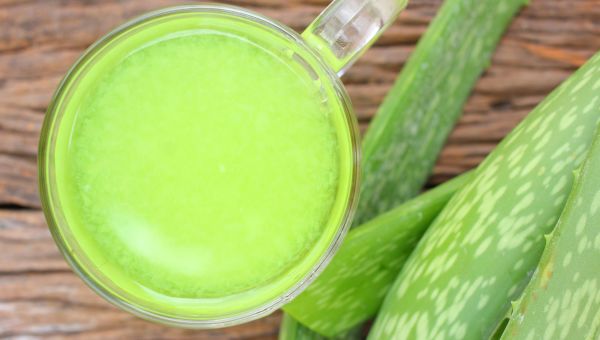6 alternative therapies for colitis and Crohn's
Want to ease pain and inflammation? Consider these complementary care options.
Updated on October 24, 2022

Going Alternative
Inflammatory bowel disease (IBD) can be hard to reign in. When conventional treatments have too many side effects or just don't get symptoms under control, many people turn to alternative care. While not completely proven, some complementary therapies may help ease ulcerative colitis or Crohn's disease symptoms and make daily life a little more bearable.
We asked Robin Miller, MD, an integrative medicine specialist, for smart tips to help people with IBD and caregivers figure out which options might work. Remember to always talk with your healthcare provider (HCP) first.

A Word of Caution
While most people call it alternative medicine, the best way to think of these options is complementary care, meaning they should be used alongside regular care and treatments from your HCP—not as a replacement. Remember, even "natural" options can have side effects and dangerous interactions. You should always know what to expect in terms of results and potential risks, and be aware that studies on alternative therapies are limited compared to standard medicine. Talk with your provider before trying any complementary therapies.

Acupuncture
A review published in Inflammatory Bowel Diseases in 2019 determined that acupuncture may help relieve symptoms, and Dr. Miller says it has helped about half of her IBD patients at Triune Integrative Medicine in Medford, Oregon.
During a session, an acupuncturist inserts very thin needles into the skin at strategic points on the body, sometimes far away from the area in pain. The goal is to increase blood flow and promote the body's natural painkillers. Most people don't feel pain during the treatment. But if you're afraid of needles, you may want to try acupressure instead, says Miller.

Turmeric
A 2020 systematic review published in Nutrients found that curcumin, a compound found in the spice turmeric, helped people ease ulcerative colitis symptoms when they used it along with regular medical care.
Miller often recommends turmeric to her patients in the form of a supplement called Zyflamend (to be taken with food). Says Miller, "In some people, it can cause heartburn, nausea, dizziness or diarrhea. In that case, I suggest people stop it."

Probiotics
"Probiotics are good bacteria that help keep the gut healthy," Miller explains. Another 2020 review published in Nutrients determined that probiotics may help prevent or treat IBD.
Probiotics are available as supplements and in some foods, such as yogurt, miso, tempeh, and soy drinks. Mild side effects include bloating and gas. If you want to lend the good bacteria an extra hand, add foods that contain prebiotics to your diet. They feed the probiotics and include bananas, leeks, asparagus, and garlic, says Miller.

Fish Oil
Fish oil is a popular anti-inflammatory omega-3 supplement. Some studies show it helps reduce symptoms of ulcerative colitis, while other studies don't show the same results.
Though you can opt for supplements, Miller recommends simply adding fish to your diet a few times a week instead. "It's almost always best to get supplemental nutrients the natural way—from food." When taking the supplement, most people don't notice any side effects, but the most common is diarrhea.

Vitamin D
"I worry about vitamin D levels in all of my patients," Miller says. "I try to keep their levels between 40 and 80 for general health." This vitamin is crucial for bone health, and people with ulcerative colitis or Crohn's disease tend to be deficient. If you have active symptoms or have been on steroid therapy, your HCP may recommend 1,000 IU per day to help protect your bones. Also, while it's not clear why, some studies have shown that high doses may ease Crohn's symptoms. For people with IBD, Miller recommends taking a dissolvable form of vitamin D that goes under the tongue or using a skin cream for better absorption.

Biofeedback
"I highly recommend biofeedback for stress," Miller says. "Stress can play a big role in IBD exacerbations and other diseases as well."
Using sensors placed on the skin, a biofeedback device monitors your brain waves, heart rate, muscle tension, and other data. This information is fed back to you as a graph on a monitor, a flashing light or a beeping sound. With these cues, you can learn to calm your mind and body. The goal is to master the relaxation techniques so you can do them at home. This therapy may help reduce stress and pain and give you a sense of control over your colitis or Crohn's.

A Caution About Aloe Vera
A popular home remedy for soothing minor cuts and burns, aloe vera is also thought to have anti-inflammatory benefits. It often comes in a gel cap or drink, and some people with mild ulcerative colitis say it helps with symptoms. But Miller isn't on board. "I don't generally recommend aloe because it can have a laxative effect, and I'm not sure it's helpful."

A Caution About Boswellia
A few studies have suggested that the herb boswellia (also known as Indian frankincense) may help ease symptoms of ulcerative colitis, likely due to its anti-inflammatory properties. But Miller warns that this herb can decrease the effectiveness of many drugs used to treat IBD. The evidence just isn't strong enough yet to safely recommend boswellia for IBD.

Lamb CA, Kennedy NA, , et al. British Society of Gastroenterology Consensus Guidelines on the Management of Inflammatory Bowel Disease in Adults. Gut. 2019;68(Suppl 3):s1-s106.
Song G, Fiocchi C, Achkar JP. Acupuncture in Inflammatory Bowel Disease. Inflammatory Bowel Diseases. 2018;25(7):1129-1139.
Coelho MR, Romi MD, et al. The Use of Curcumin as a Complementary Therapy in Ulcerative Colitis: A Systematic Review of Randomized Controlled Clinical Trials. Nutrients. 2020 Jul 31;12(8):2296.
Weng W, Goel A. Curcumin and colorectal cancer: An update and current perspective on this natural medicine. Seminars in Cancer Biology. 2022;80:73-86.
Jakubczyk D, Leszczyńska K, Górska S. The Effectiveness of Probiotics in the Treatment of Inflammatory Bowel Disease (IBD)—A Critical Review. Nutrients. 2020;12(7).
Scaioli E, Salice M, Belluzzi A. Omega-3 as a Part of the Dietary Guidance for Patients with Ulcerative Colitis: Beyond the Natural Sources. Clin Gastroenterol Hepatol. 2021 Jun;19(6):1296-1297.
Bendix M, Dige A, et al. Seven Weeks of High-Dose Vitamin D Treatment Reduces the Need for Infliximab Dose-Escalation and Decreases Inflammatory Markers in Crohn's Disease during One-Year Follow-Up. Nutrients. 2021 Mar 26;13(4):1083.
Narula N, Cooray M, et al. Impact of High-Dose Vitamin D3 Supplementation in Patients with Crohn's Disease in Remission: A Pilot Randomized Double-Blind Controlled Study. Dig Dis Sci. 2017 Feb;62(2):448-455.
Lin SC, Cheifetz AS. The Use of Complementary and Alternative Medicine in Patients With Inflammatory Bowel Disease. Gastroenterol Hepatol (N Y). 2018 Jul;14(7):415-425.
Catanzaro D, Rancan S, et al. (2015) Boswellia serrata Preserves Intestinal Epithelial Barrier from Oxidative and Inflammatory Damage. PLoS ONE 10(5): e0125375.
Khan I, Samson SE, Grover AK. Antioxidant supplements and gastrointestinal diseases: A critical appraisal. Med Prin Prac. 2017 March;26:201-217.
More On


video

article


video


video


video
